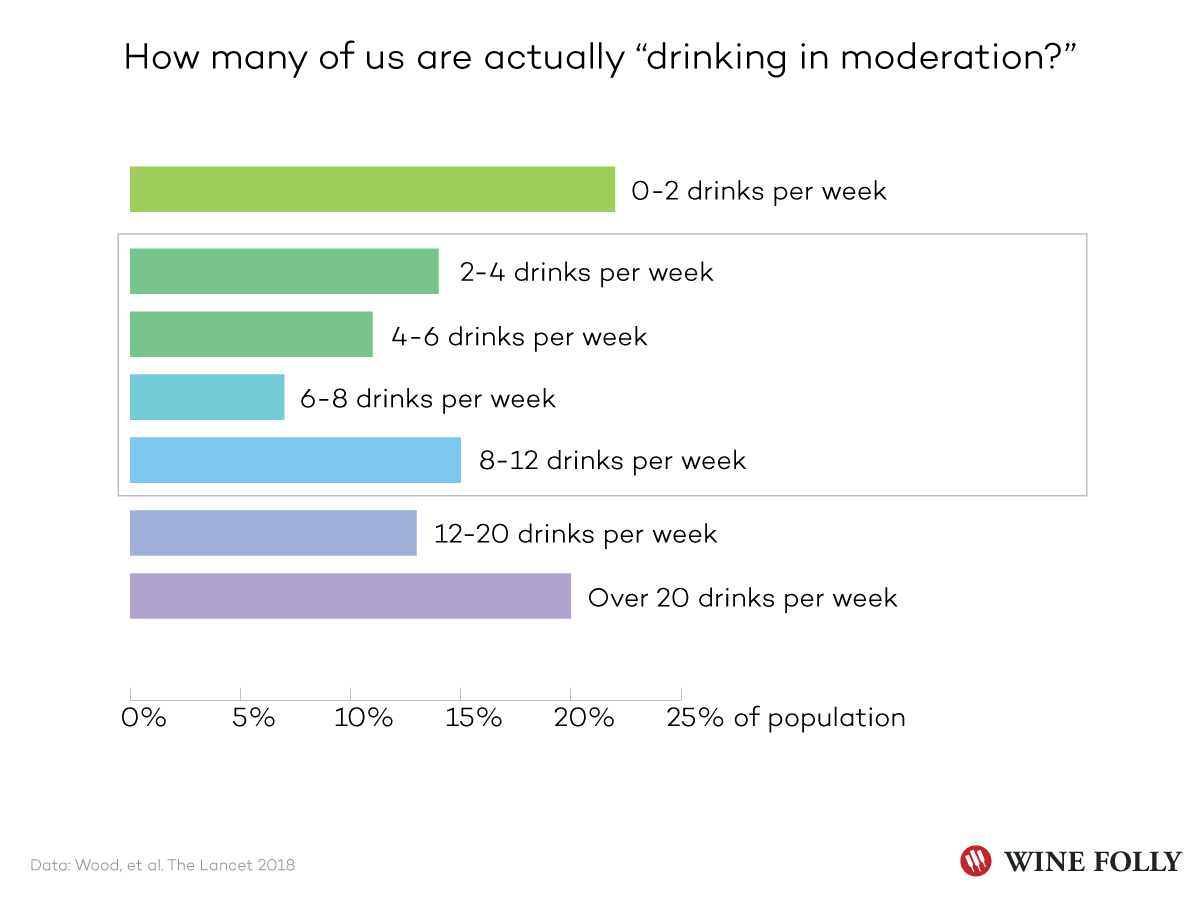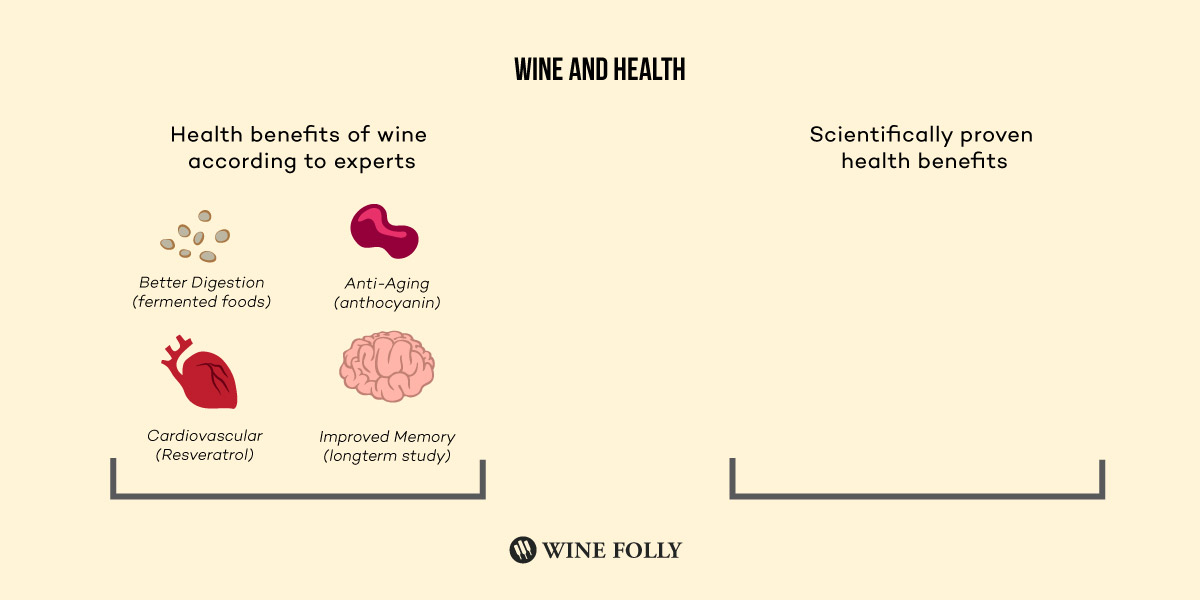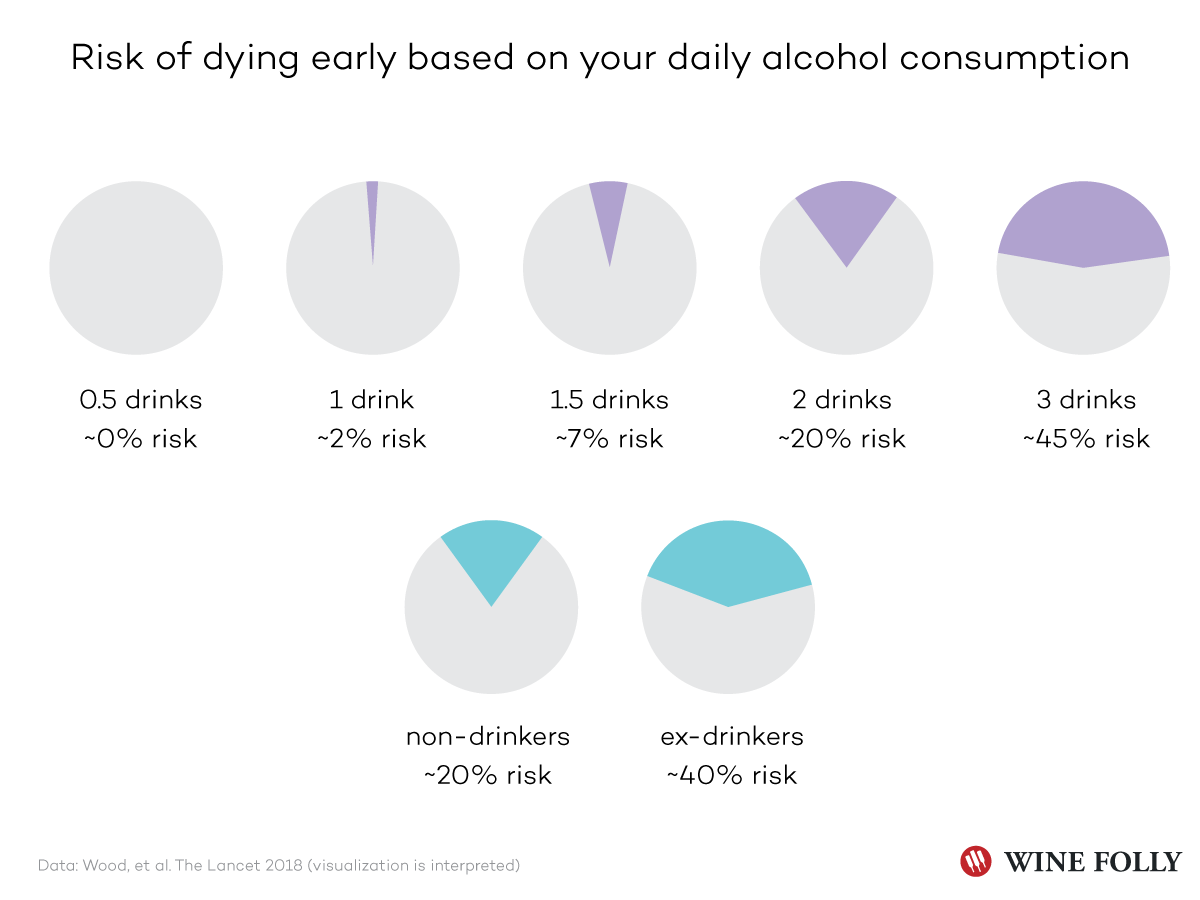Each year a fresh set of stories about wine and health is published. While we don’t like to admit it, most of these headlines are taken at face value:
“A glass of wine is worth an hour at the gym.”
“Extra glass of wine a day ‘will shorten your life by 30 minutes.'”
These are actual headlines.
Suddenly, more of us choose to drink wine instead of go to the gym. Or, in the latter example, more of us conclude that wine is a death sentence. Oh my!
Time to hit the brakes. Let’s look at the topic of wine and health and where we stand in 2019.
On Wine vs. Death
In 2019, life still comes with a 100% risk of death. So, the question is more about how much wine increases our basic risk of dropping dead at any moment.
(long awkward pause…)
Two studies came out last year looking at alcohol consumption by crunching many (hundreds) of cohort studies with big data-style statistical analysis.

The reason none of these studies are direct is because asking people to drink wine for science is unethical. (For shame, I tell you!)
The first study showed that if you’re over 40 and routinely drink two or more glasses of wine a day, your risk of death increases by 20%. Oh no!
Oddly enough, the study also showed a bizarre correlation among non-drinkers, ex-drinkers, and moderate drinkers (those drinking just one glass of wine a day). Those who drank one glass of wine a day had a lower risk than a non-drinker and an ex-drinker of dying.
(BTW, there were many possible reasons for this… check this chart image for more detail).
On Wine vs. Disease
The second study showed how drinking increases general risk of disease. It measured outcomes of 23 disease conditions (including things like breast cancer and tuberculosis) and their relationship to alcohol use.
The study is fancy (i.e. it’s very hard to read) and was funded by the Bill and Melinda Gates Foundation. In fact, it was one of the most cited studies in 2018. The most damaging thing in the study states:
“Our results show that the safest level of drinking is none.”
But wait! When we look at the absolute risk of this study (shared by British Statistician, David Spiegelhalter) we can see that risk increase is not significant for moderate drinkers:
- If you drink zero drinks per day, your absolute risk of developing a health problem is 0.914%.
- If you drink one drink per day, your absolute risk of developing a health problem is 0.918% more (0.44% more than non-drinkers).
- If you drink two drinks per day, your absolute risk of developing a health problem is 0.977% (7% more than non-drinkers).
- If you drink five drinks per day (1 bottle of wine), your absolute risk of developing a health problem is 1.25% (37% more than non-drinkers).
So, the conclusion made in the Bill and Melinda Gates study seems a bit extreme. An increased risk of 0.44% for having one drink per day is insignificant.

That said, if you’re a health-policy maker, the numbers look much scarier at scale. On a country-wide level, you’re dealing with the risk (and cost) of alcohol abusers (those five drink per day-ers), along with everyone else. Let’s not forget drunk drivers and people who cause crimes of aggression while drinking.
(Yep, I know. They’re ruining it for the rest of us!)
Conclusion Time
The two recent studies using big data analytics showed that moderate drinking (one glass of wine a day–regardless of sex) has an insignificant level of risk associated with it.
We also learned that drinking a bottle of wine by yourself in a day is still a terrible idea.
What was annoying about these studies was that none of them separated wine drinkers from other alcoholic beverage drinkers. This is a problem because wine is often singled out in other studies due to how it performs differently – better – than other alcoholic drinks.
Final conclusion: If you want to be healthier, you might reduce your wine consumption to a glass of wine a day.
Opinion Time
Unfortunately, the overall mood in the studies this year was pretty somber. The conclusions are generally negative towards alcohol use – possibly to encourage or justify future policy changes.
One thing is for certain, though. All of this slogging through medical documents has given me a strong thirst…
Have something to add? Check out the sources (if you dare) and leave a comment below!



